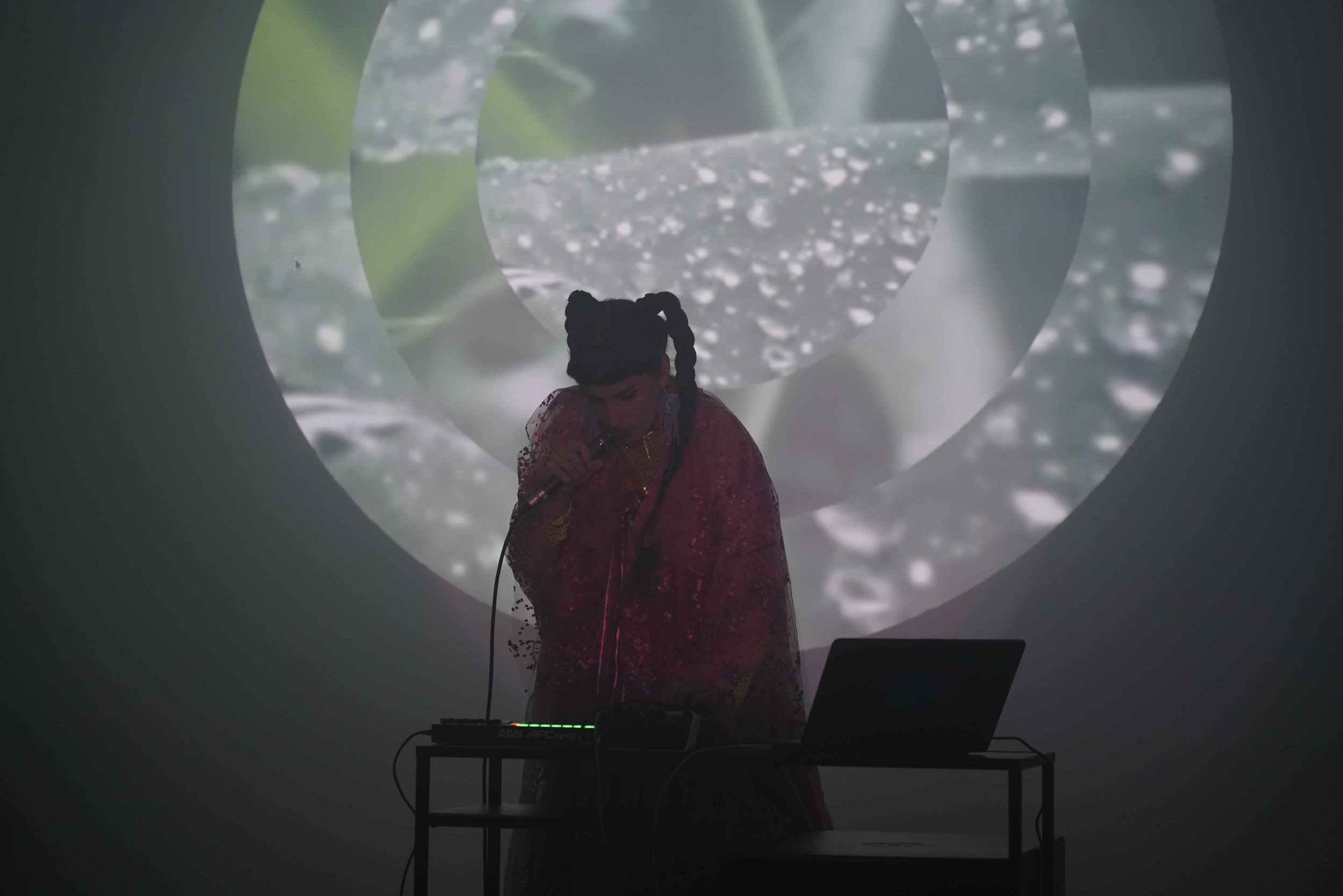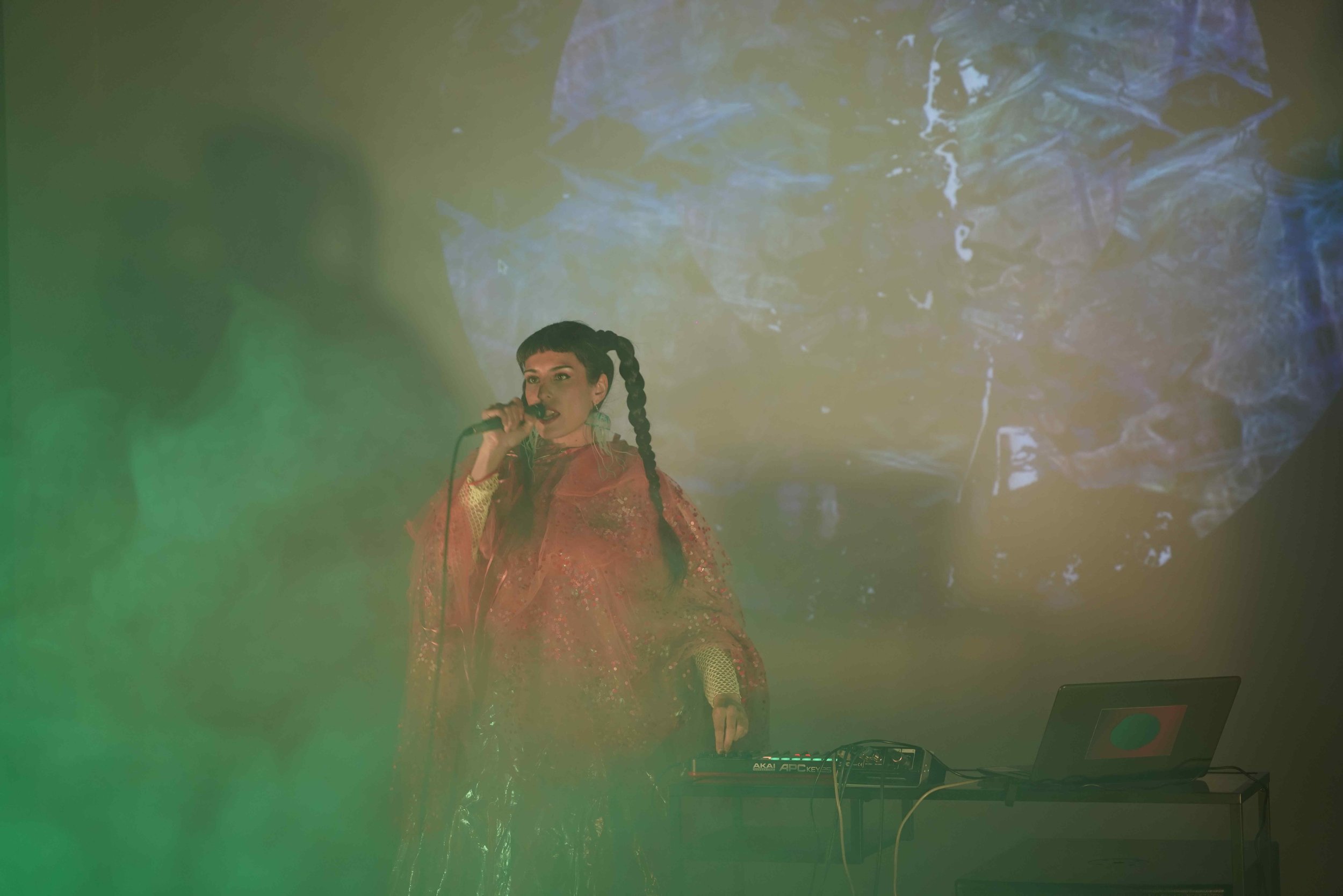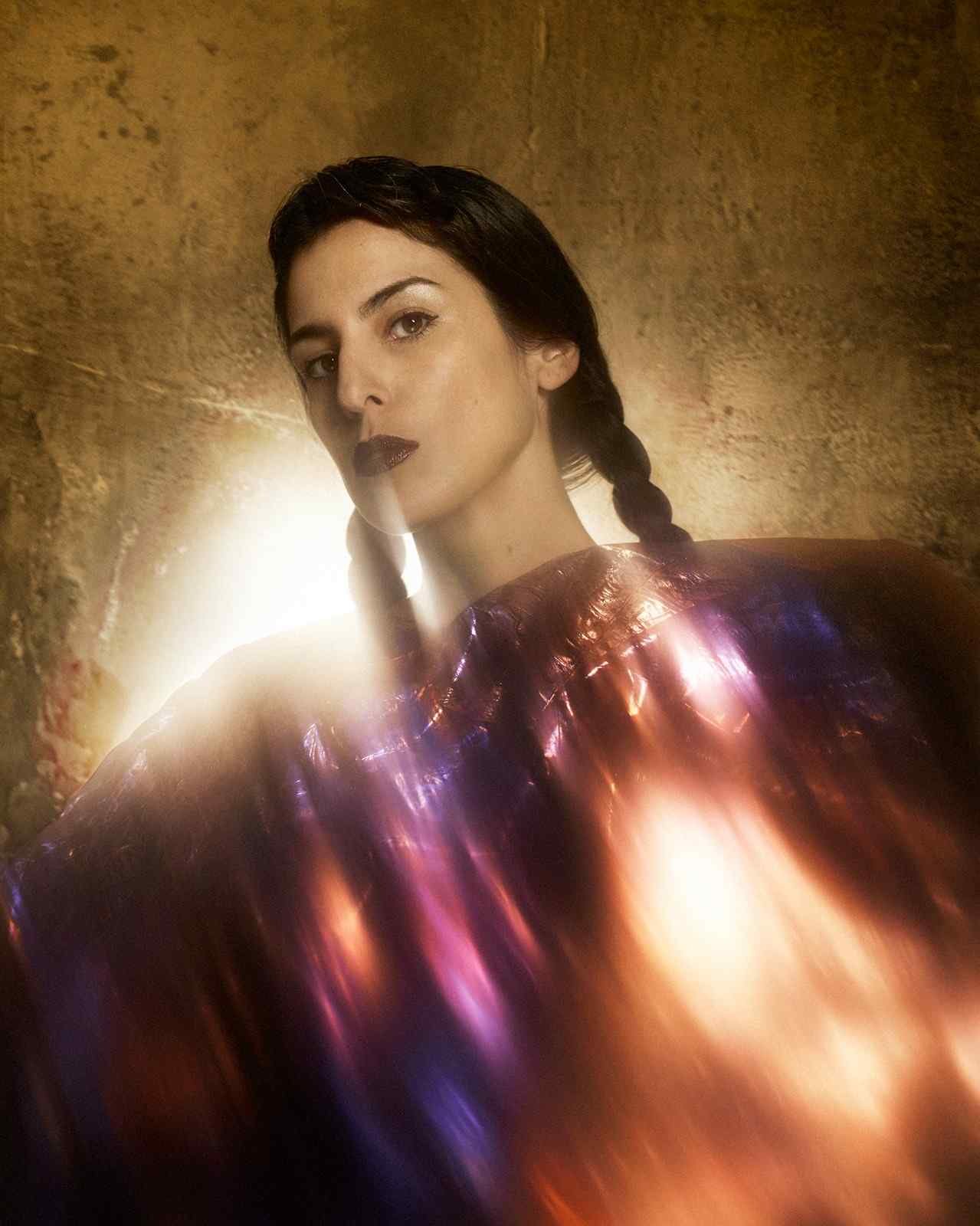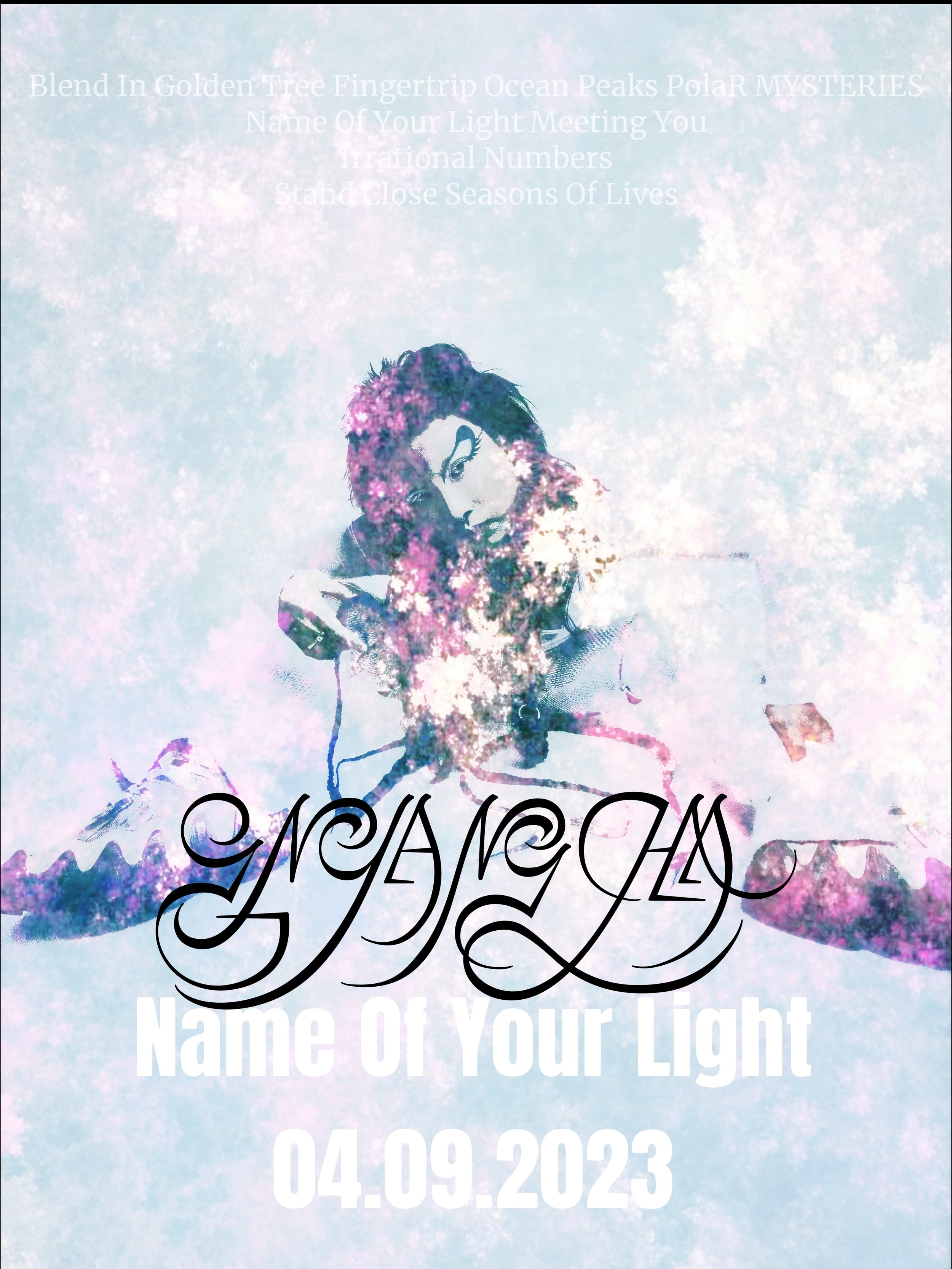Morita Vargas
Morita Vargas plays with polyphonic compositions of realistic and hyper-realistic digital sounds that form intricate, hypnotic motifs. Mystic, thus transcending humannes, her music is an exploration towards an expanded version of humankind.
When AI seems to have reached the formula of creativity and humans seem to not have anything left to create, artists such as singer-songwriter Morita Vargas are still on the verge of delving deeper in humans’ emotions and expressions left untold. Her experimental approach sees the creation and unfolding of multiple paths hypnotizing and moving consciousness to a parallel - or simply intersectional - dimension. Sounds deeply inform mental visions to form and holistically persuade the body to hallucinate.
How do you conceive experimentation?
For me it comes out from playfulness. To not take things too seriously is the key. In the course of each creative process, many paths are opened, one never knows where it ends and that is what is intriguing. In my case, I experiment in part with what I feel emotionally at that moment and I add a component of curiosity, of something that I have not done before to detach it from what I have already done. I always find my method very abstract because it doesn't have any formula, and I think that's what experimentation is all about. It is unpredictable and mysterious. Anything that sounds can be part of a song, the secret is to find the elements that you want to combine so that they narrate something that has to do with yourself.
How does that work for you, how do you practice music experimentation?
I use Ableton Live and I create several channels where I use instruments, whether they are audio or MIDI, and a main channel where the voice will go. The first melodies that I record usually serve as a structure. They are like the backbone of a whale. Around that column, I compose melodies that are close, lateral, complementary and symbiotic to that backbone, and at the end of everything, when I am about to finish the piece, I erase that backbone and leave everything else. It is as if one melody served as a support for the other. In fact, I create many melodies first with the voice, and then I turn them to the instrument.
Is your music connected to any other kind of intelligence beyond human’s?
No, unless there are aliens who listen to my music. I think it would be something incredible to find out that our songs are playing on another planet. Maybe, who knows. But about my compositions, no, they are only made by a human being.
The primordial is a primary trait of your work: your sounds seem archetypes of human consciousness hybridly sharing synthetic, digital tones and fleshy nature sounds. What’s the background narrative of what you produce?
I feel like I'm trying to describe an emotional state. It seems to me that the industry is very focused on generating songs that will produce some kind of sound addiction. In my case I feel that I narrate emotions that are sometimes not pleasant to find. It's like telling something that's hard to talk about, but maybe everyone has gone through it, we just don't want to hear it over and over again in a loop. Just the opposite of addiction, I feel that I compose in a way in which I give the song a certain emotion to transit only temporarily, otherwise it runs out and loses meaning. I'm not a fan of 100% digital or 100% natural, so I tried to combine those two things in the most organic way possible.
The natural and artificial sounds create a cyborg made of vibrations and frequencies. How do you relate to cyborgs?
I think we're all a bit of a cyborg since we started interacting with electronic devices. From the first computers to cell phones, we are slowly realizing that. I don't really know what my relationship with the cyborg is, but I feel like I don't know anything about that, the only thing I know is that my cell phone and computer knows a lot about me. The cyborg thing has not yet begun to captivate my full attention, for the moment I am still moved by the human, trying to solve my own heart and mind. Human beings are unpredictable. That moves me. But thinking about it, is fucking crazy that a human being invents a machine that tries to decipher the human being.
How has your music changed over the years?
What I perceive is that at first I started with abstract things. I didn't even want people to understand me. I was making songs only for myself.
In my case I never studied music, so I always had a free style when it came to composing and that helped me never follow any pattern or typical song structure. But lately I'm more "pop" than before, it's like I'm having fun realizing that there's a secret pop formula inside me that I know how it works and I can apply it to the songs. My dream is to be able to combine the abstract, ambient, experimental, fantastic, hybrid, with the taffy of pop, the rustiness of folk, the danceable vibrations of electronic music. I am also experimenting more with singing in my language, because before I felt more naked singing in my language, now things are changing.
And how do envision it changing as AI has entered the realm of creative work?
I only know that I know nothing. As long as it solves solutions and its use is positive for humanity, it's all good. As soon as it's destructive, it's going to be all bad.
Artists are already crazy, and that's where AI doesn't go, that madness. Honestly, I can't imagine how everything will change. I did not investigate much about it but I detect that it has its pros and cons. The advancement of technology is inevitable, the curiosity of man is also inevitable. I believe that as long as we keep creating from our minds/body/hearts, we are going to be connected to something deep and foundational, that even if the AI tries to achieve, even if it is ahead of everything winning the race, something is going to be missing. But let's not say anything, let's keep it a secret in case AI gets offended.
interview ILARIA SPONDA
What to read next

















